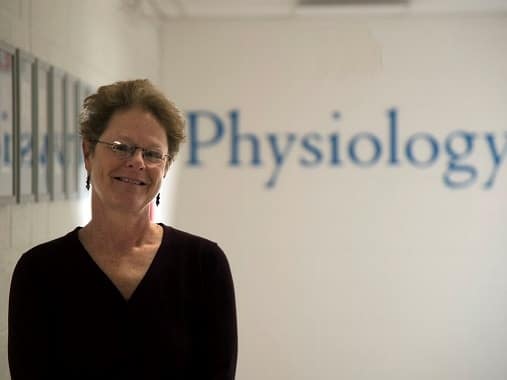

A new group of Canadian researchers has been inducted into the Royal Society of Canada (RSC), including four scholars from the Université de Montréal, ten from McGill University and eleven from the University of Toronto.
“I am impressed by the exceptional quality of this year’s nominees, which include the highest ever proportion of Francophones as newly elected Fellows,” said RSC President Maryse Lassonde in a statement.
Now numbering over 2,000 fellows, the RSC is Canada’s national academy of distinguished scholars, chosen by their peers for outstanding contributions in their fields, which range from the natural, applied and social sciences to the arts and humanities.
“I was deeply honoured that I was nominated in the first place. The fact that I’m receiving [the fellowship] is really wonderful news,” says Dr. Patricia Brubaker, professor in U of T’s department of physiology and Canada Research Chair in Vascular and Metabolic Biology since 2001. Dr. Brubaker is a pioneer is the study of regulatory peptides whose research has contributed to the development of new treatment options for gastrointestinal disorders, diabetes and obesity. “It’s very humbling to know that people think well of your work,” says Dr. Brubaker.
This year’s crop of fellows also includes University of Lethbridge’s Dr. Bruce McNaughton, a neuroscience professor whose groundbreaking work on synaptic plasticity, spatial cognition and long-term memory contributed to the work which won the 2014 Nobel Prize in Physiology and Medicine.
“Generals get medals for battles won through the courage and sacrifices of their troops. Senior scientists get elected to prestigious societies for much the same reason,” says Dr. McNaughton. “It is a pleasure and honour to have been nominated and elected, but the main credit goes to the many talented trainees and research staff who have made any achievement I have made possible.”
Established in 1882 as Canada’s National Academy, the RSC’s mandate is to promote learning and research in the arts, humanities and sciences and to advise the government and Canadian citizens on matters of public interest. The society periodically issues statements and submits reports on a range of topics, such as assisted suicide, genetically engineered foods, oil spills and the state of public libraries in Canada.
Earlier this year, the RSC sent a letter to Prime Minister Justin Trudeau urging the government to put a stop to BC’s Site C hydroelectric dam, stating that the project stands as both an environmental concern and a threat to First Nations treaty claims.“Past projects often neglected or ignored aboriginal peoples and their concerns – with adverse and lingering consequences,” said Lassonde. “Those days are supposed to be over.”
The RSC letter took issue with the government’s regulatory approval process for the $9-billion, 1,100 megawatt project, arguing that the Joint Review Panel conducted by provincial and federal governments appeared “streamlined in order to expedite review of the Site C project.”
The Site C hydroelectric dam is being built on the Peace River in northeastern BC, with construction commencing last year and a projected completion date of 2024.
Leave a Reply
You must be logged in to post a comment.



 Share
Share Tweet
Tweet Share
Share




Comment